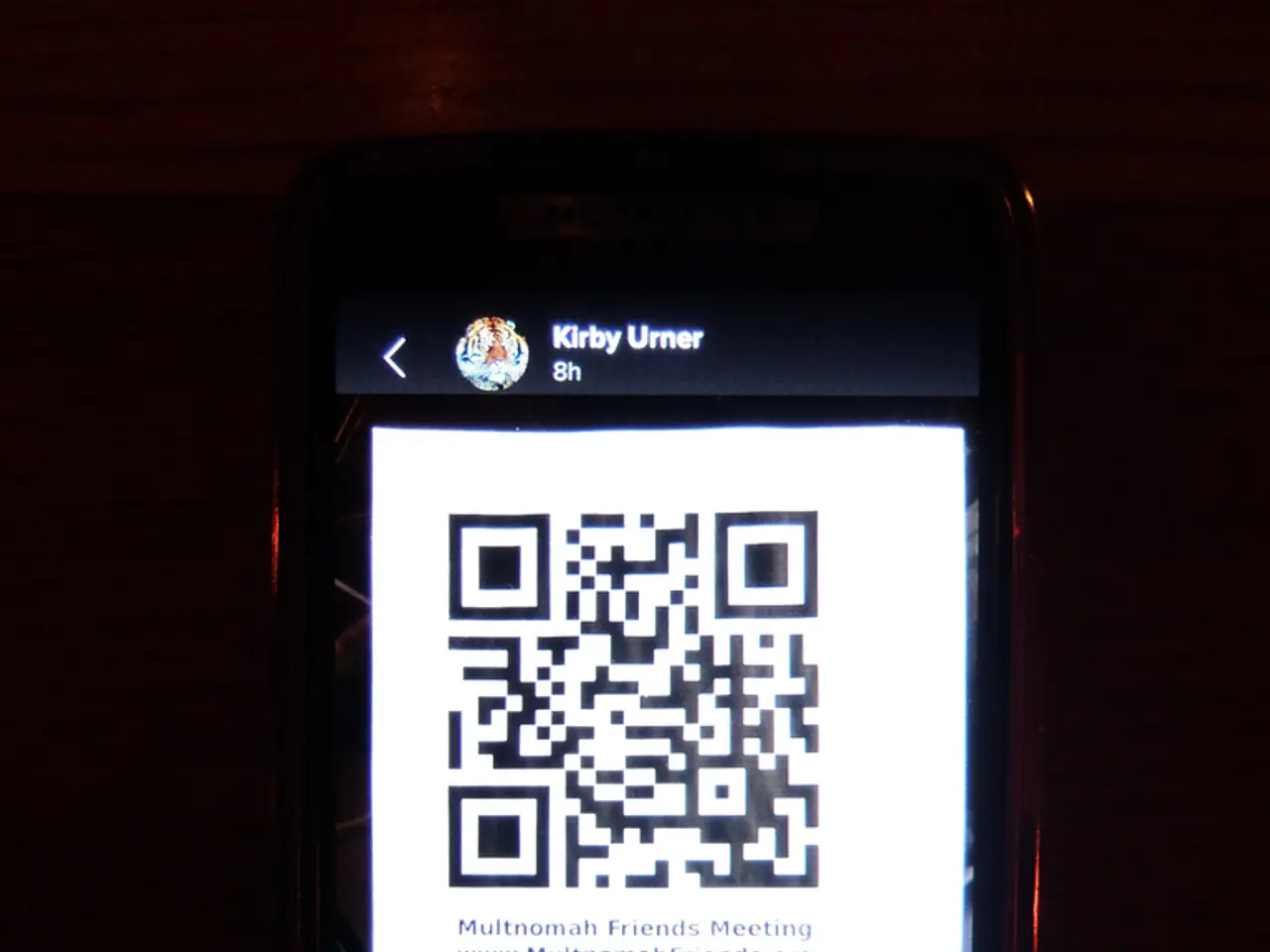Agency issues alert over a specific QR code-related swindle
In the digital age, Quick Response (QR) codes have become a common feature in our everyday lives. However, their popularity has also made them a target for scammers. The Federal Bureau of Investigation (FBI) has issued a warning about a new scam involving QR codes on packages that weren't ordered.
The FBI states that this activity is not as widespread as other fraud schemes but urges the public to remain vigilant. Ignore QR codes stuck on packages that you didn't order, as they could lead to financial fraud activities.
The increasing presence of QR codes in our lives makes them a popular target for scammers. Scammers are even sticking fake codes over legitimate ones, so be cautious when scanning QR codes, especially when out and about.
To protect yourself from potential financial fraud or malware activities, follow these key precautions:
- Inspect QR codes before scanning: Look for signs of tampering or suspicious placement. Avoid scanning codes from unknown or unexpected sources, such as unsolicited mail packages or emails.
- Use a secure QR code scanner app: Choose an app that previews the URL before opening it, allowing you to verify the link’s legitimacy and avoid being immediately redirected to malicious sites.
- Verify the source, especially in emails or messages: Do not trust QR codes embedded in unexpected emails or messages claiming urgent actions, like securing your account. Instead, go directly to the official website or app to manage any account issues.
- Keep your device’s operating system and security software updated: This helps protect against vulnerabilities that malicious QR codes might exploit to install malware.
- Install strong antivirus and web protection software: Such software can detect and block malware and malicious websites that could result from scanning harmful QR codes.
- Avoid entering personal, financial, or login information on websites reached through scanned QR codes unless you are certain they are legitimate. Be alert to suspicious URLs, especially those that are misspelled or unusually long.
- Enable two-factor authentication (2FA) on important accounts to add a layer of protection in case your credentials are compromised via a scam.
- If you receive packages you didn’t order containing QR codes, do not scan them, and be skeptical of mystery packages without clear sender information.
The FBI's warning about QR codes on packages applies to all QR codes, not just those on packages. This latest variation of the brushing scam, where unsolicited merchandise is sent to trick people into posting fake reviews, incorporates the use of QR codes on packages.
In summary, vigilance before scanning, using secure apps, verifying sources independently, maintaining device security, and employing 2FA are your best defenses against QR code scams that aim to steal financial information or install malware on your device.
Stay vigilant and avoid scanning QR codes on packages that you didn't order, as they may lead to financial fraud or malware activities. To protect yourself, verify the source of QR codes, use a secure QR code scanner app, and ensure your device's operating system and security software are updated. Furthermore, be cautious when scanning QR codes in general, as this latest variation of the brushing scam utilizes QR codes on packages to steal financial information or install malware.




